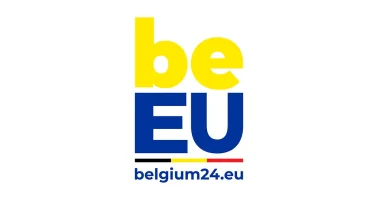April 26, 2024 - EUROACTIVE
Despite the presentation of a new compromise text to national governments on Thursday (25 April), no serious progress is expected on the review of the energy taxation directive before the next mandate of the EU Parliament and Commission .
Belgium, which holds the rotating presidency of the EU Council until June 30, put the review of the energy taxation directive (ETD) on its agenda.
This was the Belgian presidency's second attempt to move forward on the issue. In late February, its first compromise text failed to gain support, although it built on previous efforts by the Spanish and Slovenian Council presidencies in 2023.
Many stakeholders see the continued application of current fiscal rules as a serious problem, arguing that they discourage investment in more climate-friendly energy.
Three years of negotiations
The Energy Taxation Directive has been in force since 2003. It establishes a minimum level of taxation on energy products, fuels and electricity. But its equalization of all energy sources, whether carbon-emitting or not, is not aligned with the EU's broader climate goals.
According to the European Court of Auditors, the rules of the directive are in contradiction with the EU's climate policy.
As a result, the European Commission proposed a review in 2021. Since then, discussions have stalled, hampered not only by the war in Ukraine but also by the fact that fiscal matters remain the exclusive province of national governments.
This means that all 27 countries must agree to the new rules. In other words, each country has a de facto veto, which it can use to protect its own interests.
No parliamentary position
There is also a lack of consensus between political groups in the European Parliament, which only has an advisory role on this issue.
The text's lead legislator, Johan van Overtveldt (ECR), refused to submit a report for consideration by Parliament's Economic Affairs Committee last Thursday (April 18).
“It is clear that after all these years of negotiations, there is still no clear majority for compromises,” he said. According to him, “the Socialists and the Greens refused to compromise on the transition period for the aviation and maritime sectors, as well as on the role and future of nuclear energy.”
The Belgian parliamentarian is postponing the text until after the elections. “It is up to the next Parliament to decide the fate of this file,” he concluded.
Failed Council negotiations
The Belgian presidency's initial compromise text, presented at the end of February to national governments, offered more flexibility in fiscal rules, for example by excluding wood and charcoal from the scope of the directive.
The second compromise, discussed yesterday (April 25), includes a series of additional elements to satisfy the demands of the various delegations, such as greater flexibility in the taxation of aviation fuels, “one of the complicated points” of the text, a European diplomat told Euractiv.
Despite these concessions, little progress was made. “It is not certain that we can reach an agreement during the Belgian presidency,” adds the first diplomat contacted.
Another diplomat was more cautious: “At this stage, it is too early to say whether the Council will be able to reach an agreement before the end of the semester.”
“If delegations cannot support the compromise text, there is a risk that the currently applicable energy taxation directive will continue to apply for an indefinite period, which would be regrettable,” the Belgian presidency noted in its pledge.
Problems for interested parties
In France, keeping the current rules unrevised would be problematic, several stakeholders say.
It would be “disappointing,” Phuc-Vinh Nguyen, an energy policy researcher at the Jacques Delors Institute think tank, told Euractiv. “As it stands, the directive is a disincentive to investment in non-carbon energy, due to minimum tax rates that are more favorable to fossil fuels,” it continues.
At the same time, the French Electricity Union, which represents the interests of the French electricity industry, insists on a review of the directive to “ensure a level playing field in terms of climate between energies, to support decarbonization.”
Former Italian Prime Minister Enrico Letta noted in his recent high-profile report on the single market that “a rapid agreement on the ETD is necessary to provide the right incentive for renewables across the single market.”

